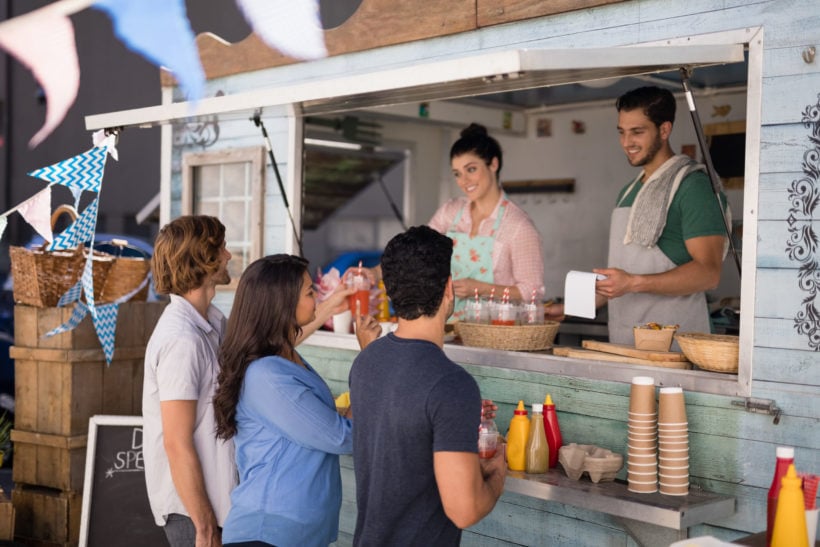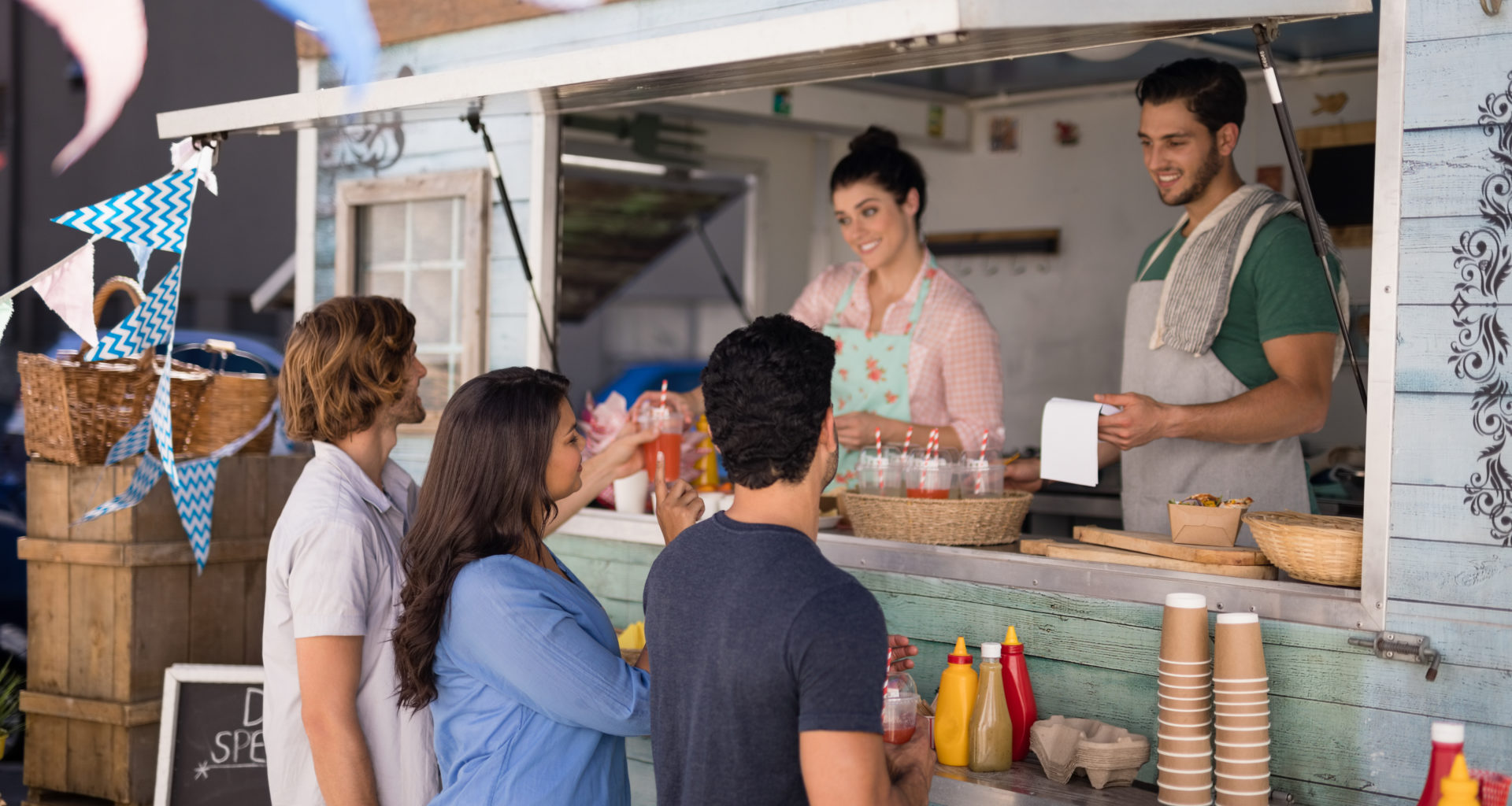Even with soaring inflation, people always need to eat, and most workers need a convenient place to grab lunch. That’s why the food truck business has become so attractive to entrepreneurs. They’re a convenient way to enter the restaurant business without having to incur all the costs and risks of running a full-fledged dining room and kitchen. And, for consumers, food trucks offer a quick, hot meal at a price far cheaper than that at a sit-down restaurant.
As a business, food trucks are surging in popularity. Right now, more than 35,000 food trucks are operating in the U.S., which is nearly 14% more than in 2021. So, the idea is catching on. Many entrepreneurs recognize the potential opportunity of setting up a highly profitable business with immediate cash flow, and the venture can even be started as a weekend side hustle. What’s not to love?
Getting started
The biggest challenge you’ll face when starting a food truck business is securing your initial capital financing. Why? Because most banks categorize food trucks as a “transient business.” Essentially, they see a food truck as a mobile venture and a potential fly-by-night operation, which makes securing appropriate financing an obstacle for many trying to get started.
What’s the typical setup cost?
It varies by project scope and what assets you might already have in place, but the usual startup cost for a food truck business is between $50,000 and $250,000. The price of the vehicle and the kitchen equipment you outfit it with will make up the largest percentage of your initial outlay. On top of that, you’ll need an initial investment in food inventory, as well as the permits, licenses and insurance fees that vary by state and local community. It can all add up pretty quickly.
Set yourself up for success
Do some preliminary research and determine what type of food will sell in your particular market. What cuisine is missing? What’s popular? What isn’t yet available from a food truck? And most importantly, what kind of food do you love preparing or are particularly passionate about? You’ll want to have these aspects of your business nailed down before you begin.
Dealing with permits and logistics
Save yourself from making a big mistake and familiarize yourself with what you can legally do in your locale. One of the easiest ways to do this is to talk to other food truck owners about the hurdles they had to jump in order to start their venues. Unfortunately, they will view you as competition and might not be forthcoming with useful information.
You’ll want to cover what you’re legally able to sell in your region, what permits and liability coverage you’ll need and, most importantly, where you will be able to operate your business and what the restrictions are for that location. Laws vary wildly from location to location, so do your homework before fully committing to your food truck dream.
Common Mistakes Entrepreneurs Make in Their Business Journey

Shop for the right financing deal
Once you have determined the viability of running a food truck business in your town, it’s time to finance your venture. Banks are looking for a fairly robust credit score – usually 680 or higher – before they will loan you money to start your food truck venture. If you have a substantial down payment or have another vehicle to use as collateral, they might be flexible about your credit score. For those with less than stellar credit scores, online and fintech lenders will be much more willing to strike a deal with you, although their terms will be marginally higher.
That’s why it’s important to shop around for a good finance deal. Some food truck financing solutions emphasize your credit score over other criteria and vice versa, so identify your financial strengths and find the right lender to fund your venture.
Equipment loans and working capital loans
Side note: If you already own a restaurant business and want to expand your reach with a food truck, there’s a good chance you’ll qualify for either an equipment loan or a working capital loan. For an equipment loan, you’ll typically need to provide a small down payment, with your food truck itself serving as collateral for the loan.
Working capital loans are short-term loans designed to give you a shot of cash to get started. Use it to purchase inventory ahead in anticipation of a busy period or, conversely, to get you through a slow time period, such as winter when sales may be slow or if you have to go on hiatus.
Consider alternative lending and merchant capital financing
Merchant cash advances can help entrepreneurs and established retail businesses or wholesale suppliers. This form of alternative lending is essentially an advance on your business’s future sales. In other words, you’ll receive a cash injection now, which you’ll repay as a percentage of your future food truck sales.
Merchant cash advances work incredibly fast and are best for short-term financing needs. Your credit score will also have less weight when you apply for this type of financing.
Ready to begin your food truck journey?
Finding the right solution depends on so many different factors. It might be best to consult a business advisor to go over the details of your particular set of circumstances. They can help you identify options with the lowest possible interest rates, the most appropriate funding amounts and the best repayment terms.
If you’re unsure about which food truck loan is best for you, consider consulting with an expert business advisor.
Verizon Small Business Digital Ready: A free resource for learning basic business skills, the latest digital technology and more.






